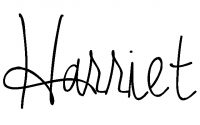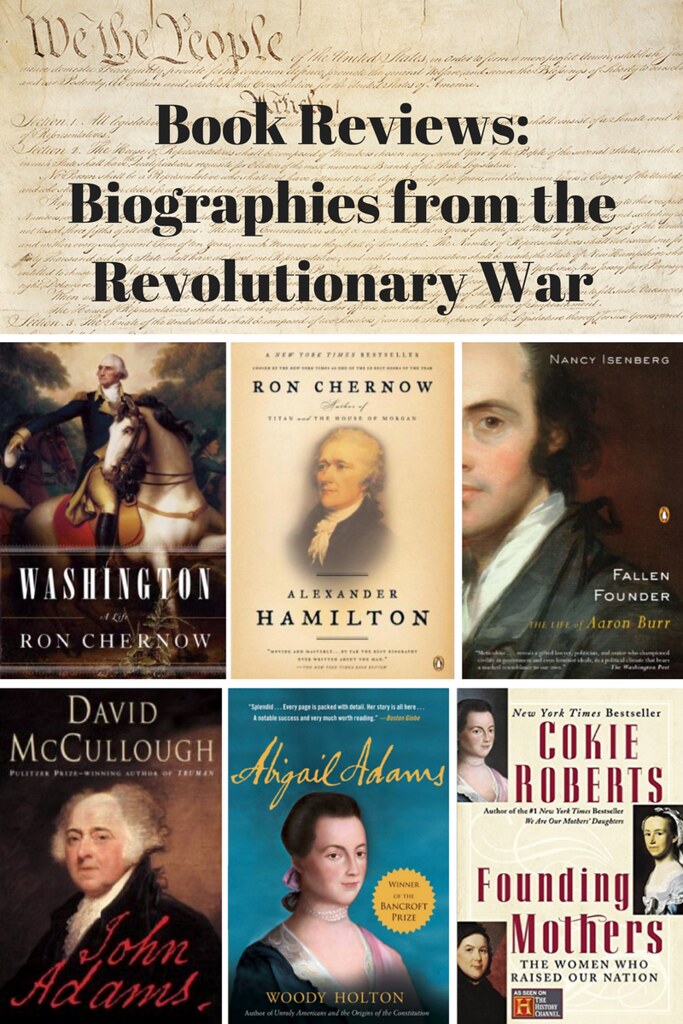A few biographies of the movers and shakers of the founding of the United States. I have kind of a crush on feminist Burr and I want Abigail Adams to be my mother, or my aunt, or whatever. Also, I need to find a really great biography of Jefferson, because even though he’s kind of a cad, I feel a fair biography may help me appreciate some of his finer moments and contributions. Any recommendations?
Washington: A Life, by Ron Chernow (5 stars). For thinking I knew all about George Washington…uh…I really didn’t know that much. Granted, in Chernow’s biography–all 927 pages of it!!–it’s pretty easy to not know a LOT of things he brings up. Like, I didn’t realize that Washington spent YEARS away from Mt. Vernon while commanding the Revolutionary army, I didn’t realize he never had children of his own, I didn’t realize how much of the office of the President he shaped according to his own style and not necessarily the dictates of the Constitution or Congress. And those are all BIG things! I did know that he owned slaves, but did not realize how wishy-washy he was about it, swinging from accepting and even promoting slavery, to abhorring it but not emancipating his slaves, keeping families together, but at what cost!? Upon his death, Washington’s slaves were freed (a provision he wrote in a new will in the last 6 months of his long life), but those of his wife were not, and many of the two groups were married to each other, so how does THAT work? Washington was a great man in so many ways, and so deeply flawed in so many others. I think Chernow does a good job of showing us both sides, and also walking the fine line between Washington and Jefferson and their separate warring political factions. It was really interesting to read more about how the country was founded and the government and office of the President created, especially in these SUPER tumultuous Presidential times (RIP 2016).
Alexander Hamilton, by Ron Chernow (5 stars). Doesn’t hurt to have a super famous Broadway musical about A-Ham to make the whole world suddenly interested in the American Revolution again. I really enjoyed this book, Chernow makes the dense history and political pieces easy to digest, and Hamilton himself is such a fascinating character with so many flaws and lucky breaks and charisma to keep him above water. Recommended. (I also read Hamilton: The Revolution by Lin Manual Miranda (4 stars), who was inspired to start writing couplets and bits about Hamilton (which became Hamilton) after reading this Chernow biography on the beach in Mexico. I knew LMM and I could be friends, but knowing we are the kind of friends who take a dense non-fiction on vacation? Yep, he’s my people.)
Fallen Founder: The Life of Aaron Burr, by Nancy Isenberg (3 stars). Aaron Burr is infamous and most of us only kind of know why. I mean, yes, he killed Hamilton, was a womanizer (WHAT OF THE REVOLUTIONARY LEADERS WASN’T!?) and was Vice Pres. to Jefferson, and he was eventually tried for treason, but…why? Isenberg attempts to redefine Burr’s life and put it back in a positive light, however she falls short because it seems she is so obsessed with him she can’t give space to his negative qualities. (Also? Anyone who thinks the Founding Father’s were without fault is wrong, they were good men, but all were deeply flawed in one way or another and to lose those flaws does them (and us) a huge disservice.) Things I admire about Aaron Burr: he was a raging feminist, both in his relationships with his wife Theodosia and daughter Theodosia, and in his practice as an attorney. He admired Rousseau and Mary Wollstoncraft and insisted on extensive education for his daughter and autonomy for his wife; he was one of the few attorneys in New York City who would argue divorce cases for unhappy women. Great, ok, so…why is he considered a traitor? I think this is the series of events, honestly, Isenberg spent a lot of time telling us what didn’t happen, and a lot less on the actual facts. So, it seems that Jefferson and others had it out for him? And set him up in a series of faulty trials? With wishy-washy circumstantial evidence? He was apparently raising an army to invade New Orleans? And Mexico? But no army was even found and his confiscated property turned up cases of books, not cases of guns? And something about him leading a rebellion from a fancy rich estate….but the evidence shows he was never actually there? So, let’s bring in a hundred character witnesses to talk badly about Burr to convince the jury? Which didn’t work either? So, Jefferson et al tried to change the due process laws to get around the wishy-washy evidence? Or alter the evidence to make it more condemning? But they got caught?! So Burr was not indicted but his reputation was forever tarnished? Listening to it made it a little confusing to keep that all straight. Probably 3.5 stars, really. Minus 1.5 stars for Isenberg, not for Burr.
American Sphinx: The Character of Thomas Jefferson, by Joseph J. Ellis (3 stars). This isn’t quite a biography, although there is a lot of information about Jefferson’s often opposing ideas, meaning, he opposes his own ideas, holding opposites as truths on a number of different topics (hence: Sphinx). I am thisclose to ranking it two stars, especially for all the patriarchal “benevolent” slavery-racism that the AUTHOR excuses as “okay” because of the time period. But then also includes sections where Jefferson opposes slavery…? Doesn’t match up. I truly think Jefferson believed he wasn’t a racist because he was generally kind to his slaves and didn’t beat them personally…and because he wanted the Native Americans to be moved west of the Mississippi to leave their lands for white European settlers, but didn’t promote their wholesale slaughter. So, just because he’s “more moral” than some Southern plantation owners doesn’t mean he’s actually a moral person. (He’d probably start the hashtag #NotAllSlaveOwners and see zero irony in it.) Jefferson was a deeply troubled person, and yes, he had some brilliant political insights and his library was the basis of the Library of Congress and that is all fine and good…but I like him far less now than I did prior to reading this book, and that is okay too.
John Adams, by David McCullough (5 stars). An excellent, engaging biography detailing the founding of the United States, the players, their actions, the political stage, etc. Additionally, McCullough captures Adams as a family man, his dedication to his wife and children (and grand children), despite a lot of time away from there for his political commissions. I will say, the biography I read of Abigail Adams does a lot more to capture both her and John’s marriage, family, and private life, I’m glad I had that background to fill in some of the gaps from this book in that area. Overall, however, it does feel like McCullough is very comprehensive, describing world politics and the historic upheaval of Adams’ long life–he lived longer than any other president, I believe–and the changes throughout his lifetime. Excellent–but lengthy–read.
Abigail Adams, by Woody Holton (5 stars). Prior to this biography I didn’t know much about Abigail Adams, feminist, investor, philanthropist, stateswoman, and wife of President John Adams. I loved learning more about her through her writing, letters to her husband, friends, and children, and the documents that illustrate how progressive she was for her time, going against convention and also at times against British and American law in order to assert her own independence, both as a woman, wife, and businesswoman. I also love that in her will (which is one of those things that goes against convention and a little against the law) she leaves money and property to her female relatives, but not to any males. Women in her era could hardly own property or have money or investments of their own, and she made darn sure that her female posterity had access to whatever means she could possibly make their own. Dah, I love her.
Founding Mothers: The Women Who Raised Our Nation, by Cokie Roberts (2 stars). The layout of this book ruined it for me. The author includes a lot of great content, the snippets of information we have about many women in the early, tumultuous days of the American republic. However, I don’t care for the organization or the frequent commentary from the author. It was hard to follow the characters and what they did in the larger framework of the war chronology (as opposed to what I would have preferred, a small story about a woman and what she did throughout the war, then the next, and the next. Spreading them out with a paragraph here and another one 15 pages later made it hard for me to get into any of the stories.) I’d definitely recommend Woody Holton’s biography on Abigail Adams before this. Even Chernow’s biography on George Washington has a ton of info about Martha and other leading ladies of the day with whom he corresponded. Skip this.


